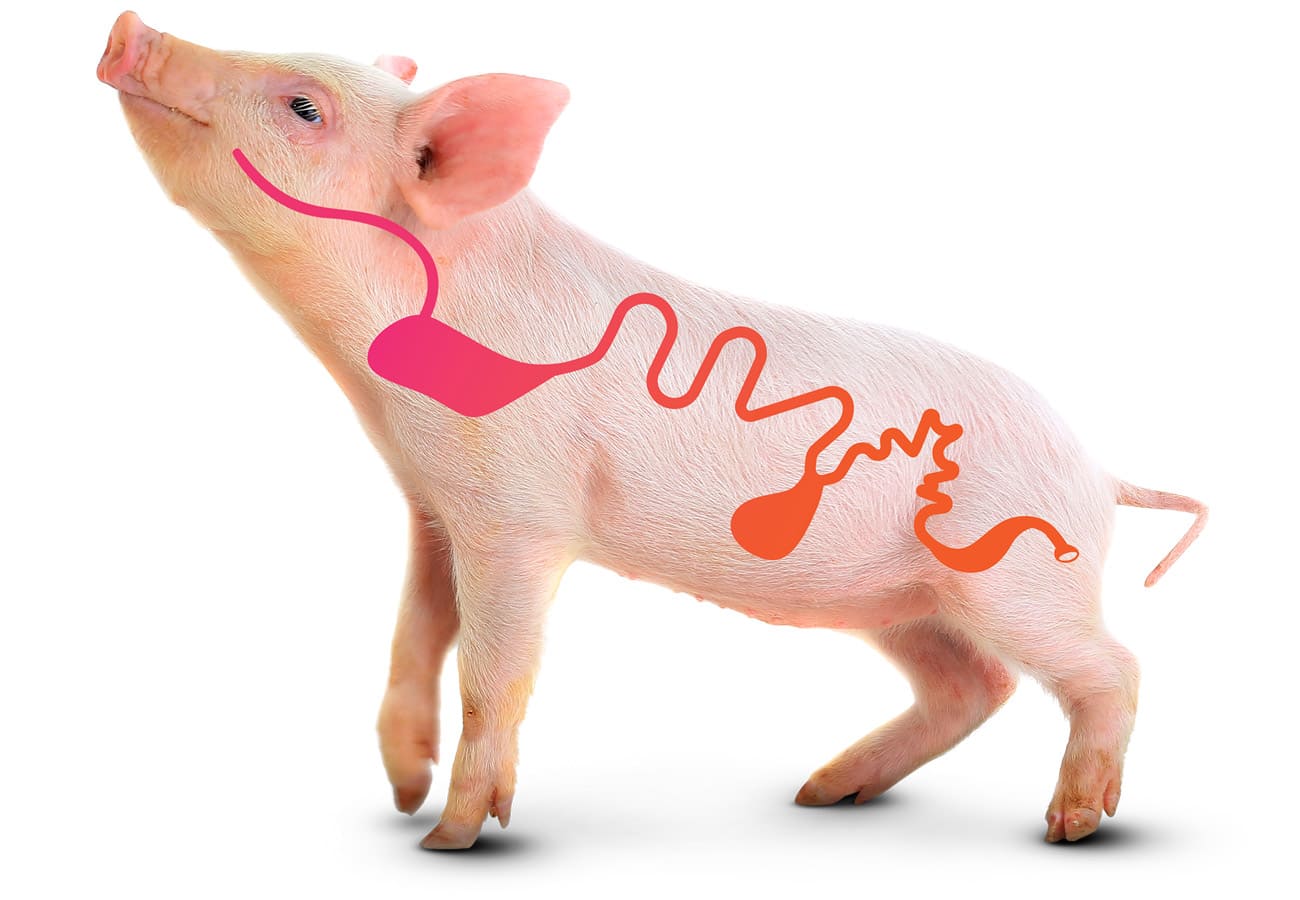
GUT CHECK PROGRAM FOR PIGS
What are the factors that are affecting the gut health of your pig?
Good gut health in swine is particularly important in younger and growing animals and is the key step to good growth and performance. Poor development and disturbances to the gastro-intestinal tract of swine cause large economic losses to the global pig industry each year.

NUTRITIONAL STABILITY
Solutions

Oxidation
Auto-oxidation is an irreversible process by which molecular oxygen combines with nutrients in an ingredient or finished diet creating rancidity and decreasing feed quality. Aside from the reduction in feed palatability and quality, oxidation also has major impacts on gut and liver health through the production of toxic compounds.

Mold and yeast
Mold and yeast are found in almost all feed and raw materials and depending on the climate they can act rapidly to reduce the nutritive value of the feed, produce harmful mycotoxins and disrupt beneficial bacteria in the intestine, impacting the performance of the pig.

Mycotoxins
Mycotoxins are toxic secondary metabolites that are produced by mold. Mycotoxins reduce the gut health of swine by damaging and inflaming the intestinal tract and other key organs. Mycotoxin challenge often results in reductions in immunity, litter size, farrowing rate, production rate and growth performance.

Undesirable flavor
Swine are highly sensitive to the unpalatable flavours that comes with many raw materials, minerals and medication used in feed. Flavouring has been used in swine production for over 150 years to ensure palatability, intake and performance during periods of stress, weaning and transition of diets.
MICROBIAL PROTECTION
Solutions

Microbial pathogens
There are many infectious pathogens, particularly E. coli, Salmonella and Clostridium that are directly related to gut health conditions and diseases, and often result in wet litter, drops in performance and increased mortality.

E. coli
E. coli is widely associated with Colibacillosis or diarrhea in pigs, particularly during the growing and weaning period. E.coli induced Colibacillosis causes low growth rate and high mortality in swine globally and gut health management is key to its control.
GUT STABILITY AND FUNCTION
Solutions

Poor epithelial development
Underdevelopment of the intestinal tract is often a result of stress or poor nutrition. If villi growth is compromised and the immune system underdeveloped, producers will see significant reductions in performance and slow growth rates.

Gut inflammation
Intestinal inflammation can occur from infection, poor nutrition or environmental stress and impairs the animal’s ability to absorb nutrients and achieve its genetic potential. The lining of the intestine can also become compromised and cause conditions such as leaky gut.
ENVIRONMENT AND WELFARE
Solutions

Water quality
Optimal water quality is of the highest importance for the health, welfare and production of pig. Hard water and bacterial contamination can greatly reduce the performance of swine and increase water excretion, causing litter problems and disease.

Post weaning diarrhea
Along with pathogenic bacteria, post weaning diarrhea can also be caused by the high acid binding capacity of piglet feed and low endogenous hydrochloric acid production in the stomach of young pigs, resulting in indigestion.
Program brochure request
















